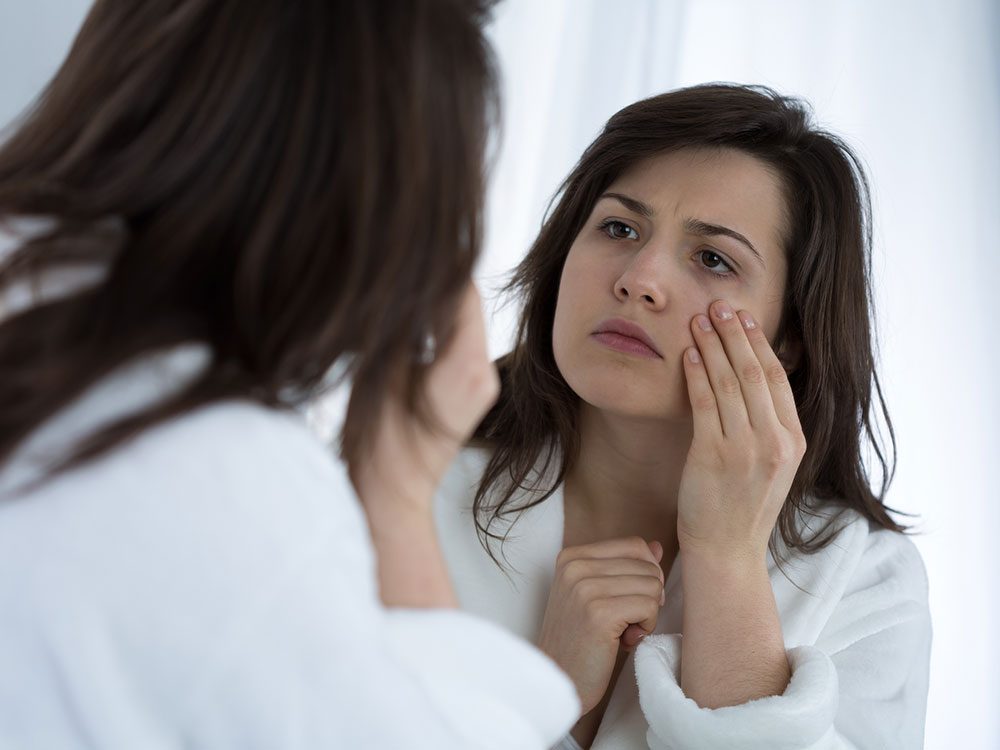
Truth Is, Most People Could Use the Help of a Therapist
As a wellness counsellor, I’ve witnessed a sea change in the way people think about their mental health. And although issues like depression and anxiety aren’t the taboo subjects they once were, there remains a stubborn stigma around seeking the help of a therapist.
We can speak freely—conversationally, even—to our friends about our mental health, but “going to a shrink” can still carry a negative connotation, and that’s largely down to the fact that many people don’t fully understand what it is that counsellors and therapists actually do. Most mental health professionals focus on what’s informally known as the 3 “Ds”: distress, development and disorders. It’s the “disorders” part that makes some people uncomfortable, but when you focus on the “distress” and “development” elements, you can see how therapy could help, well… Just about anyone. In fact, these 10 common daily “distresses” are sure signs you could use the help of a therapist.

You assume the worst first
Assuming the worst in people is at the heart of anxiety. When this becomes your default setting, it can distort the way you perceive reality, and starts to feed itself in an endless cycle of misery. If a friend hasn’t been in touch with you for a while, for instance, and the first thing that comes into your mind is not “They must be busy,” but “Why do they hate me?” you could benefit from the help of a therapist.
Learn to spot the telltale signs of high-functioning depression.

You aren’t sleeping
From clearing away the waste produced by your brain cells to muscle repair and regeneration, sleep is as important to your health and well-being as nutrition and physical activity. If you have disturbed sleeping patterns, whether it’s insomnia or not being able to get up in the morning, you might be struggling with an underlying mental health issue that a therapist might be able to help with.

You’re overeating
Eating is one of the greatest needs—and pleasures—of life, and your relationship with food is highly indicative of how you’re doing emotionally. Emotional overeating, under-eating and a compulsive need to count every calorie all serve as signs that your relationship with food has become adversarial—an issue that a therapist can help you work through.
Get to know the secret signs of binge eating.

Your self-image is distorted
Humans are the only animals (that we know of!) to be conceptually aware of our own bodies. Fortunately or unfortunately, that leaves us to be the only creatures on Earth capable of thinking, “I should.” While it is productive to have healthy goals for yourself (“I should aim to walk 10,000 steps today,” or “I should pass on dessert tonight.”), those “I should”’s can also stand in the way of self-acceptance. “I should be a size two,” “I should have flawless skin,” or “I should have got that promotion by now,” can take a serious toll on your self esteem. If you find yourself being overly critical of yourself, it might do you some good to work on unconditional self-acceptance with the help of a counsellor.
Don’t miss these 12 healthy habits of highly confident people.

You can’t seem to connect with others
The human need to interact and bond with others, whether they’re our friends, family, lovers or work mates, is fundamental. Many of the patterns of those interactions (both constructive and destructive), are set in our early childhood and adolescence, shaped largely by our initial family. If you’re struggling to find fulfilling relationships in your adult life, it could be down to those early experiences—something you might discuss with a therapist.
Find out how you can strengthen your relationships by improving your communication skills.

You can’t shake that terrible feeling of emptiness
Feelings of emptiness and meaninglessness aren’t just philosophical. Whether you’re stuck in a soul-sucking job, a relationship that’s emotionally unfulfilling, or simply lack any sense of direction or purpose in your life, it can take a toll on your well-being. Counselling therapists can often help you work towards regaining a sense of fulfillment.
According to new research, knowing your purpose in life can help you life longer.

You’re not “getting over it”
Let’s get this straight: it’s absolutely normal to struggle when you’re in the middle of something heavy. No one is immune to failure, rejection and loss, and coping with these distressing life events often involves a great deal of pain and suffering. Having said that, if that suffering is still preventing you from living your life after considerable time has passed following the trauma, you might benefit from speaking with a psychotherapist. The litmus test? If you’ve told a friend or family member you feel as though you’re “taking one step forward and two steps back” in your response to the crisis, therapy should be a consideration.
Horrible headlines getting you down? Here’s expert advice on how to cope when the world seems like a horrible place.

You’ve lost your sex drive
It’s natural for your sex drive to peak and ebb over time, but a drastic and sudden change in your sexual appetite could be a red flag. When we suffer an emotional trauma, suppression of sexual desire is a common side-effect. It’s also possible that the pendulum could swing in the other direction, and experience an increased sex drive, using sex as a means of coping with that trauma. In either case, it could warrant a conversation with a therapist, if for nothing else but to foster self-awareness and acceptance.
Get to know the most common causes of erectile dysfunction.

Your work has become a means of coping with insecurities
Yes, we rely on our careers to make a living, but they often mean much more to us than that. In our society, professional success can earn you the respect of your peers, and becomes an important part of how you define yourself and your place in your community. With so much promised by this singular pursuit, it’s no surprise that a lot of us cross the line between being a diligent worker and being a workaholic. Although we tend not to think of workaholism as an inherently bad thing, it’s technically a compulsive behavior that can have a harmful impact on your well-being. Counsellors and therapists are equipped to address the insecurities driving workaholism, and can help you foster a healthy work-life balance.
Learn how to spot the sure signs your workplace is toxic.

You’re suffering aches and pains that medical tests can’t explain
Body aches (especially in your neck, back and teeth), rashes and other unpleasant symptoms that remain elusive after medical tests could actually be manifestations of stress. In addition to pursuing further screenings recommended by your family doctor, it might also be helpful to see a psychotherapist to figure out if any of these conditions could stem from a mental health issue.
Toronto-based relationship and wellness expert Deepak Kashyap provides mindfulness-based counselling for individuals and groups through the Toronto Mindfulness Centre.
Next, find out how to get the most out of therapy.